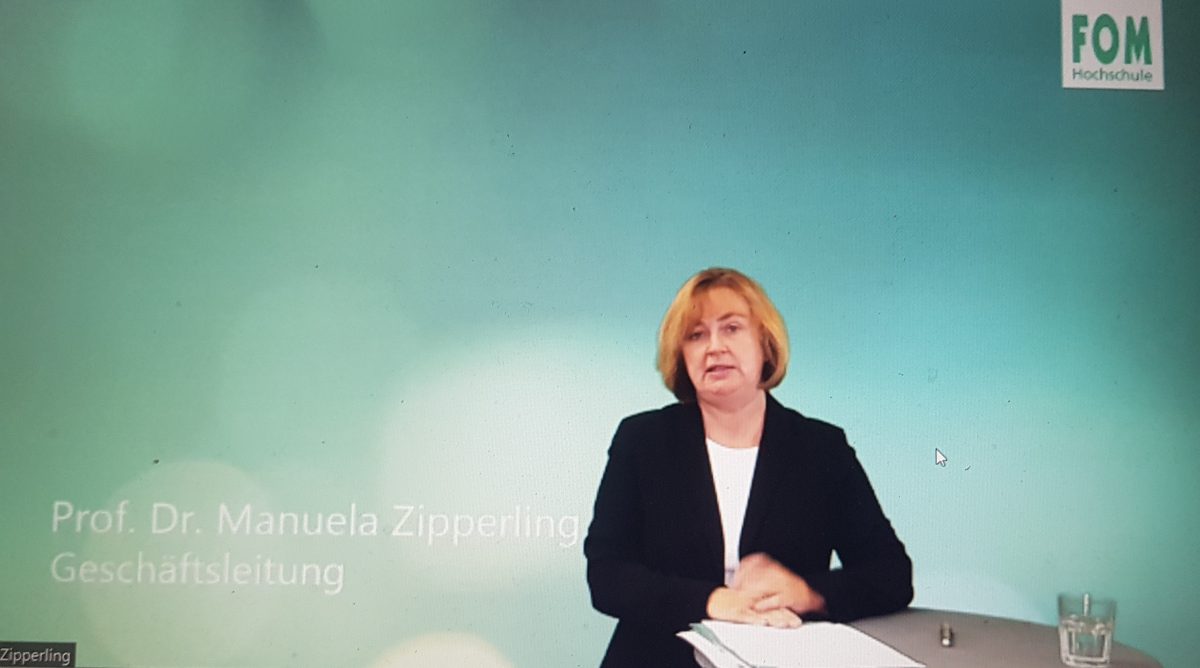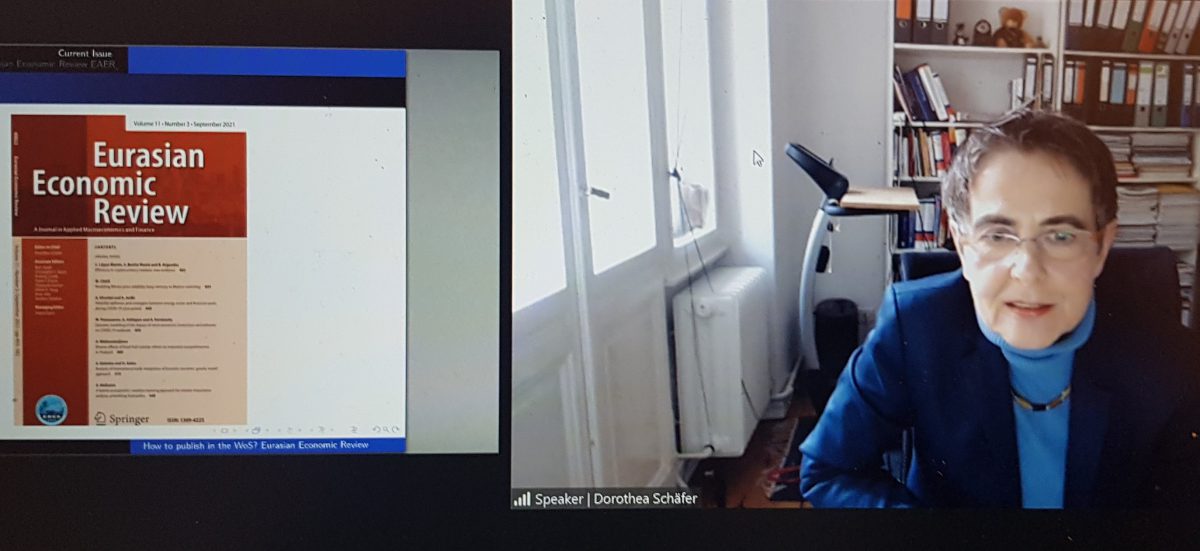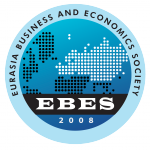The 37th EBES Conference takes place online on October 6-8 2021. GLO is a co-organizing partner, and FOM University of Applied Sciences is the local host supporting the event from Berlin. EBES, the Eurasia Business and Economics Society, and FOM University of Applied Sciences are strategic partners and institutional supporters of GLO.
Day TWO (October 7) saw next to 9 parallel research paper sessions a Special FOM-GLO Session and the GLO Handbook Session Migration I. The highlight plenary Speech of the Day was delivered by Sriya Iyer (University of Cambridge and GLO) on Religion and Mental Health chaired by Olga Popova (Leibniz Institute for East and Southeast European Studies, CERGE-EI & GLO), who is also the GLO Research Cluster Lead “Religion”. The EBES 37 Plenary Speech was this time joint with the monthly GLO Virtual Research Seminar normally chaired by GLO Director Matloob Piracha.
CONFERENCE PROGRAM WITH PARTICIPATION DETAILS: LINK
https://ebesweb.org/wp-content/uploads/2021/10/37th-EBES-Conference-Program_2021.pdf
General inquiries: ebes@ebesweb.org
Some pictures from the event and an overview of the GLO-related contributions on the day can be found below:
GLO supported program parts on October 7:
TIME STRUCTURE (All CET Berlin time)
Thursday, October 7:


9.00-11.00. FOM-GLO Session
Chair: Alexander Spermann (FOM University of Applied Sciences, Cologne, Freiburg University and GLO)
VIDEO of the session
- Monika Wohlmann (FOM University of Applied Science): The European Central Bank’s Strategy Review and the Management of Inflation Expectations
- Sascha Frohwerk (FOM University of Applied Sciences, Berlin, Hasso-Plattner-Institute, Potsdam and GLO): Retail Location Choice Models. A Comparison of Gravitation and Logit Model
- Andreas Oberheitmann (Tsinghua University, FOM and GLO): Development of a Low Carbon Economy in Wuxi City. An Example of Climate Change Mitigation in China on the Local Level.
- Michael Drewes (FOM University of Applied Sciences, Mannheim) and Luca Rebeggiani (FOM University of Applied Sciences, Bonn): Private vs. Public Financing of Sport Stadia in Germany – An Empirical Analysis.
- Sascha Frohwerk (FOM University of Applied Sciences, Berlin, Hasso-Plattner-Institute, Potsdam and GLO), Carsten Kruppe and Holger Wassermann: Evolution or Revolution: The Entry of New Company Successors in Germany
- Kai Klotz and Alexander Spermann (FOM University of Applied Sciences, Cologne, Freiburg University and GLO): Did the Refugee Crisis Cause the Rise of Right-wing Parties? Empirical Evidence from East Germany.





14.00-15.00. Plenary Speech joint with the monthly GLO Seminar
Sriya Iyer (University of Cambridge and GLO):
Religion and Mental Health
Chair: Olga Popova (Leibniz Institute for East and Southeast European Studies, CERGE-EI & GLO)
Note: The session relates to the Springer Nature Handbook project “Labor, Human Resources and Population Economics” supported by the GLO network.
VIDEO of the session.
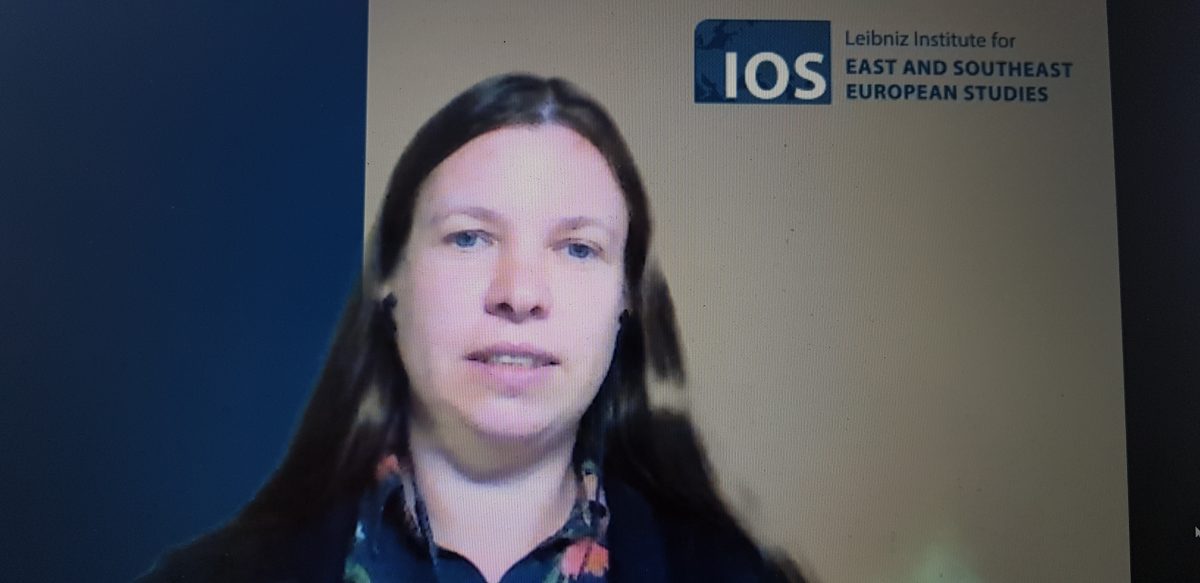
Olga Popova, Session Chair & GLO Research Cluster Lead “Religion”

Sriya Iyer (University of Cambridge and GLO)
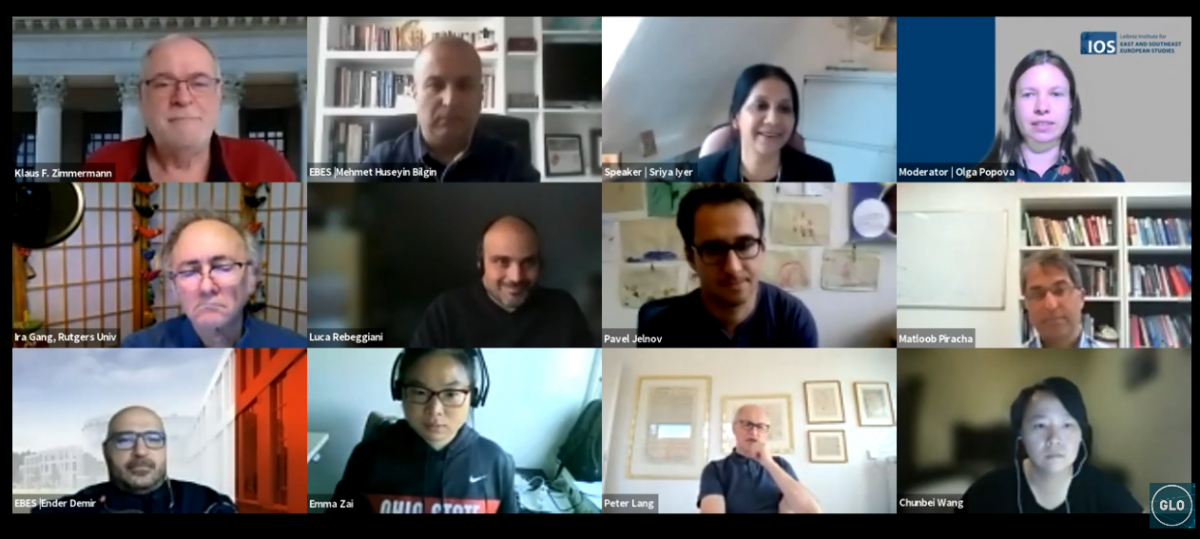

15.15 – 17.15. GLO Session Migration I
Chair: Cynthia Bansak (St. Lawrence University & GLO)
Note: The session relates to the Springer Nature Handbook project “Labor, Human Resources and Population Economics” supported by the GLO network.
VIDEO of the session.
- Chunbei Wang (University of Oklahoma & GLO) & Magnus Lofstrom (Public Policy Institute of California & GLO): Immigrant Entrepreneurs
- Sonia Plaza (World Bank & GLO): Measuring Migration
- Davit Adunts (CERGE-EI) & Mariola Pytlikova (CERGE-EI & GLO): Migration Determinants
- Massimiliano Tani (University of New South Wales & GLO) & Matloob Piracha (University of Kent & GLO): Migration and Education
- Cinzia Rienzo ( University of Brighton & GLO): Performance of Economic Migrants
- Cynthia A. Bansak (St. Lawrence University & GLO), Nicole Simpson (Colgate University & GLO) and Madeline Zavodny (University of North Florida & GLO): Immigrants and Their Effects on Labor Market Outcomes of Natives
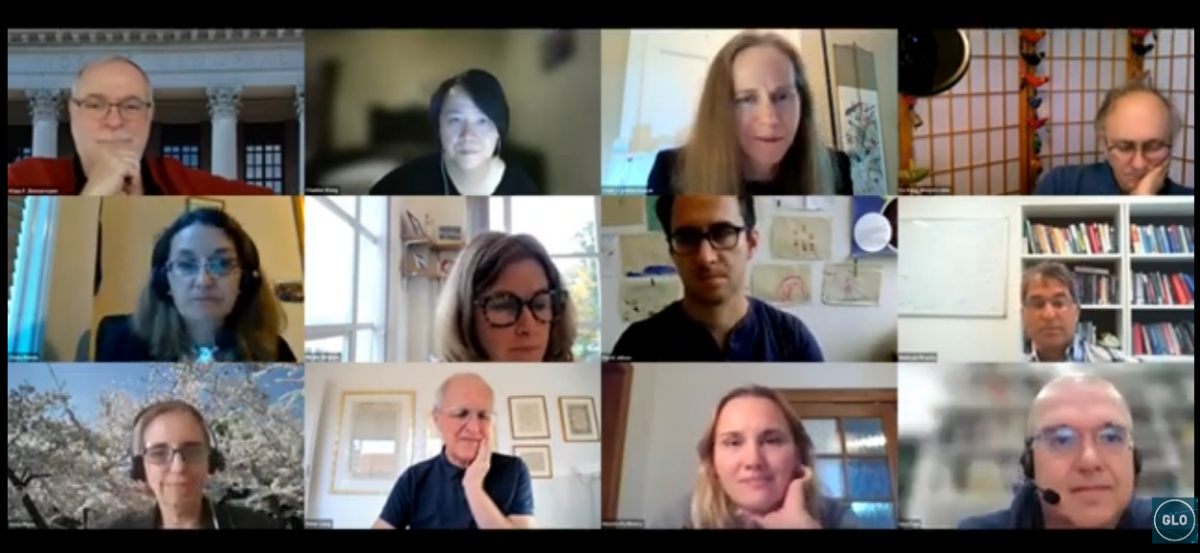
Ends;


